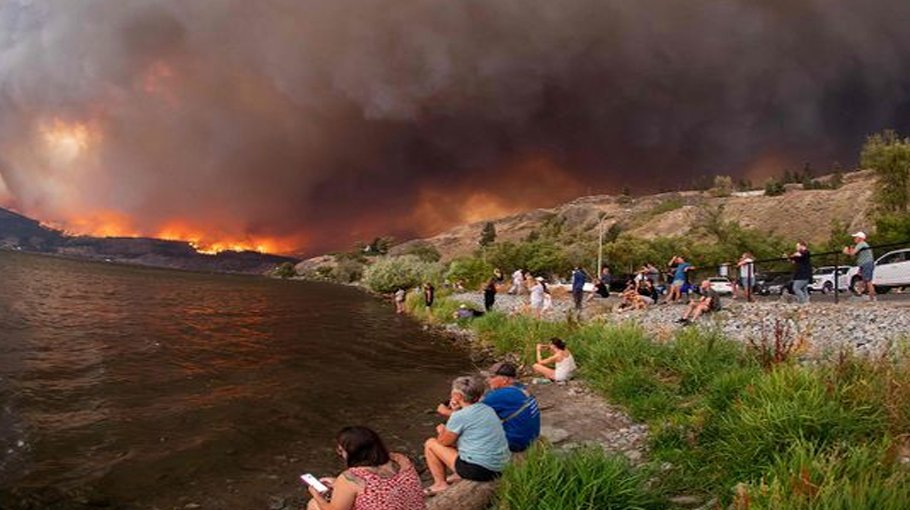COP28 and beyond: Urgent calls for climate action

The summer of 2023 was the hottest summer ever recorded, with record breaking high temperatures during June, July, and August. The last three months have been extremely hot and filled with extreme weather events, causing concerns among scientists.
June was officially declared the hottest ever recorded, followed by July, which also experienced unconfirmed record-breaking temperatures. August continued this trend, becoming the hottest August on record, since records began in 1940.
The Northern Hemisphere was hit hardest by this scorching heat, leading to heatwaves, droughts, and wildfires in regions like the United States, Europe, and Japan. Many places suffered from extreme heatwaves. In Rome, Italy, temperature records were shattered, and Phoenix, Arizona experienced unprecedented prolonged high temperatures.
These high temperatures contributed significantly to wildfires in many parts of the world. In Canada alone, wildfires burnt a record-breaking 16.5 million hectares in 2023 more than double of what the last record was in 1995. The forests area burnt in the EU this year is more than 40 per cent above the average of the past 17 years.
Human-caused climate change
These extreme weather events provide a glimpse of what a warming world may experience in the future. The persistent heatwaves and record-breaking conditions are clear signs of a warming climate system. This summer’s extreme heat has also led to unprecedented ocean temperatures, intensifying major hurricanes and cyclones.
The World Meteorological Organisation (WMO) has highlighted the significant impact of this summer’s extreme heat on air quality, human health, and the environment. It coincides with the worrying prediction that 2023 is on track to become one of the hottest years on record.
In August 2023, temperatures were about 1.5 degrees Celsius warmer than pre-industrial averages. However, long-term temperature trends are of more significant concern than short-term fluctuations.
While a natural El Niño event contributed to recent warming, human-caused climate change remains the primary driver of rising temperatures.
The 10-year average temperature from 2013-2022 is 1.14 degrees Celsius above pre-industrial levels, indicating ongoing long-term warming.
Gradual warming of the planet
Those who claim that climate change is not responsible for hotter summers often rely on a combination of misinformation, selective data interpretation, or misunderstandings of climate science. They argue that variations in the Earth’s climate are natural and that today’s warmer temperatures are part of a natural cycle.
However, extensive scientific research indicates that the current rate and extent of warming far exceed natural variations. There is a consensus among climate scientists that human activities, especially the emission of greenhouse gases like carbon dioxide (CO2), are the dominant driver of current global warming.
To understand how climate change leads to hotter summer seasons, it is crucial to grasp the basic science behind global warming. The Earth’s climate depends on a delicate balance of energy exchange between the Sun and the Earth.
Solar radiation from the Sun reaches the Earth’s surface, with some absorbed and later re-emitted as heat. The primary driver of climate change is the increased concentration of greenhouse gases, especially CO2. These gases trap more heat in the atmosphere, causing a gradual warming of the planet.
This warming effect is more pronounced during the summer months due to disrupted weather patterns caused by climate change. As the Earth warms, it can lead to changes in atmospheric circulation patterns, resulting in prolonged periods of high-pressure systems, clear skies, intense heat, and drought conditions during the summer.
Rising temperatures are causing glaciers and polar ice caps to melt rapidly, contributing to sea-level rise and reduced sunlight reflection. Warmer oceans transport more heat and moisture into the atmosphere, fuelling intense and prolonged heatwaves.
These extended periods of extreme heat push summer temperatures to record highs and have severe consequences for public health, agriculture, and ecosystems.
Climate change also affects precipitation patterns, causing drier conditions in some regions and heavier rainfall in others. Hotter and drier summers create ideal conditions for wildfires, releasing heat-trapping gases and elevating local temperatures.
Climate change can also trigger feedback loops, amplifying warming. Thawing permafrost, for example, releases methane, a potent greenhouse gas, into the atmosphere, further increasing the greenhouse effect. Whatever climate sceptics and deniers say, climate change undeniably contributes to hotter summer seasons through a complex interplay of factors.
Global climate action
The consequences of these hotter summers are far-reaching, affecting ecosystems, agriculture, public health, and societies worldwide, especially in the Middle East, North Africa, and parts of Asia, and Europe.
Addressing climate change and its impact on summer heat is an urgent challenge requiring global efforts to mitigate greenhouse gas emissions, adapt to a changing climate, and develop sustainable practices for a more resilient future.
The summer of 2023 serves as a stark reminder of the need to address the climate crisis and transition to a sustainable and resilient future.
A key UN report, released last week, highlights that the world is not on track to limit global warming to the crucial 1.5°C target set by the Paris Agreement. This report will influence discussions at the upcoming climate summit in Dubai and emphasises the urgent need for more ambitious climate action.
COP28 in Dubai is expected to be a pivotal moment for global climate action, with the report’s findings underlining the necessity for bold commitments from countries and stakeholders to bridge the gap between current actions and the steps needed to effectively combat climate change to save the planet from burning.
Ashok Swain is a professor of peace and conflict research at Uppsala University, Sweden. Source: Gulf News



